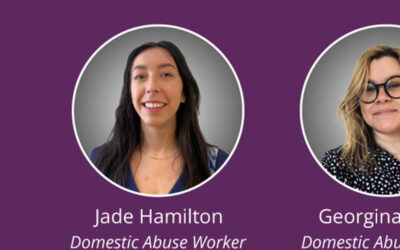As the end of this year’s 16 Days of Activism draws near, it’s important to note that domestic abuse can have significant health-related issues. And these can affect anyone.
- 1 in 4 women experience domestic abuse
- 1 in 7 children experience domestic abuse
- 1 in 6 men experience domestic abuse
The types of services that exist for survivors of domestic abuse include front-line services like the NHS. Domestic abuse can have devastating health impacts, affecting both the physical and mental health of survivors and their children. It’s well accepted that domestic abuse is often the main factor in the development of depression and anxiety. With the presence of Domestic Violence and Abuse (DVAs) Health Advocates in NHS hospitals, survivors with mental health support needs are more likely to get access to specialist support.
This is why the role of the DVA Health Advocate is so important
DVA Health Advocates at YOU support busy NHS staff across Hampshire, The Isle of Wight and Dorset to respond to domestic abuse. When supporting survivors of domestic abuse, guidance from the National Institute for Health and Social Care Excellence (NICE, 2014) recommend that all staff are trained to ask about domestic abuse. Since the start of the Project in 2019, the DVA Health Advocates have trained over 1,000 NHS staff. Effective training has translated into confident staff who feel able to ask about domestic abuse, safely.
The presence of DVA Health Advocates has increased the confidence of NHS staff to refer survivors for support. During the last 3 years, DVA Health Advocates have received over 900 referrals for support from NHS staff. DVA Health Advocates have supported NHS staff to develop a robust response to Domestic Abuse.
The importance of specialist domestic abuse support.
DVA Health Advocates have met the growing needs of an immediate response to domestic abuse. They provide immediate support to patients, relatives and NHS staff. They also provide longer-term and vital independent support. This is achieved by reducing risk, providing advocacy, and linking survivors in with other services. Like counselling and community mental-health teams. All work in a holistic and empowering way so that survivors can live independent lives free from abuse.
It’s important to know that help and support is available and that you are not alone.
If you think that you or someone you know is experiencing domestic abuse, please reach out to one of The YOU Trust’s DVA Health Advocates based in one of the hospitals or speak to an NHS member of staff.



